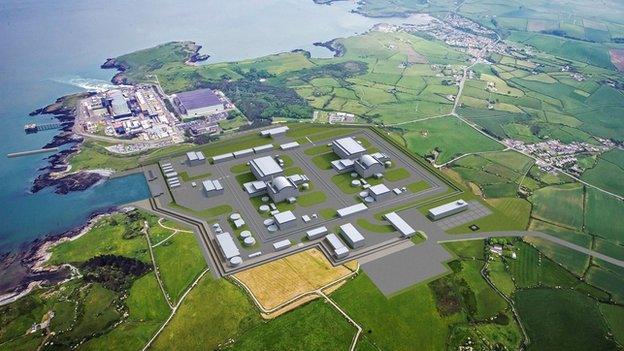Wylfa Newydd nuclear plant safety report prompts ONR action
- Published
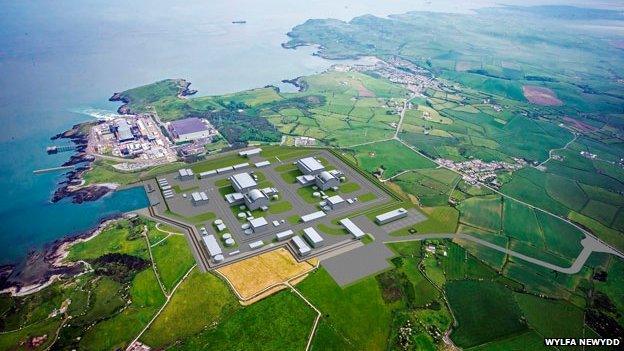
The planned Wylfa Newydd nuclear plant could employ over 1,000 people once it begins working
Nuclear safety officials have told teams developing new atomic reactors for Anglesey and Gloucestershire to rewrite vital risk plans.
Hitachi-GE want to build Advance Boiling Water Reactors, external (ABWR) at the new Wylfa Newydd site and at Oldbury.
But the Office for Nuclear Regulation (ONR) says the safety risk models put forward are not up to UK standards.
Hitachi-GE says the issue is about how information was presented - and they have since submitted a resolution plan.
The ONR issued the firm with an official "regulatory issue" notice earlier in July.
It told the nuclear engineers they must address a "serious regulatory shortfall, external" in the safety plans - called a probabilistic safety analysis - or PSA.
Officials said the PSA was "insufficient to present an overall picture and thus, a reasonable understanding of the UK ABWR risk".

What is a PSA?
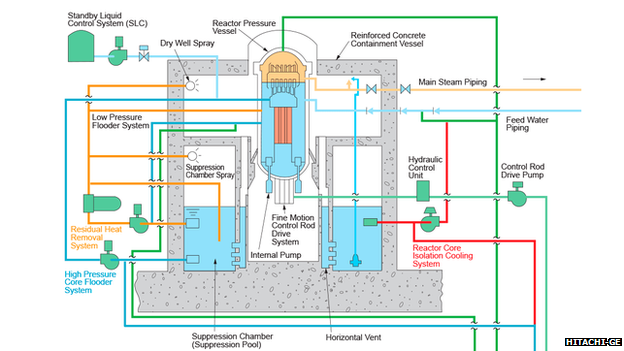
Hitachi-GE's ABWR reactor designs
The PSA is a key part of the process known as the generic design assessment, external or GDA, which looks at all aspects of approving a new reactor design.
The PSA will eventually stretch to thousands of pages of technical information, attempting to measure every single risk associated with running a nuclear plant.
If the PSA cannot be agreed, then the whole design assessment is put in jeopardy - nuclear safety officials would be unable to give the green light to using the new reactors in the UK.
Hitachi-GE says the PSA is just one of 18 different "workstreams" that makes-up the GDA process, and their resolution plan addresses concerns raised by the ONR.
The company also stresses that any issue with the PSA raised by UK officials "does not indicate a problem with the fundamental design of the ABWR plant".

Work on plans to build a new nuclear power station on Anglesey by Horizon Nuclear Power is well under way, with public consultations taking place in the area.
The developers - who are wholly owned by Hitachi - hope the new Wylfa Newydd could be up and running by the early 2020s.
But there are a number of planning hurdles that must be overcome first - including persuading UK nuclear safety officials that the planned reactor designs are safe.
That involves developing the generic design assessment (GDA) - a process that has been underway since 2013 - and is expected to take up to four years to complete.
The safety risk models are a key part of that assessment.
Officials at Hitachi-GE accepted that their initial PSA given to UK inspectors last December "did not meet UK regulatory expectations".
"As a consequence Hitachi-GE must develop a revised approach in line with UK good practice, in order to build UK regulator's confidence in our ability to deliver a suitable and sufficient full scope, modern standards, PSA by June 2016," they said.
In a statement to BBC Wales, Hitachi-GE added: "Our resolution plan, external outlines how we'll address the issue, and ONR has said this shows that the matter can be resolved within GDA.
"We're confident that we can continue to make good progress, and complete GDA by the end of 2017."
Opposition group People Against Wylfa B (PAWB) said renewable energy such as wind turbines would be a safer alternative to nuclear energy on the island.
- Published26 February 2015
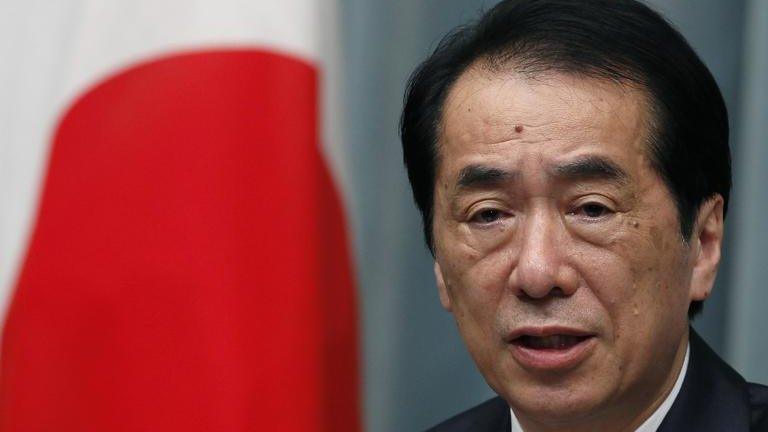
- Published17 February 2015
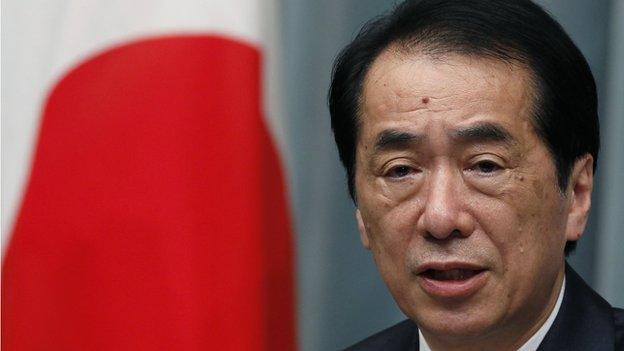
- Published29 September 2014
